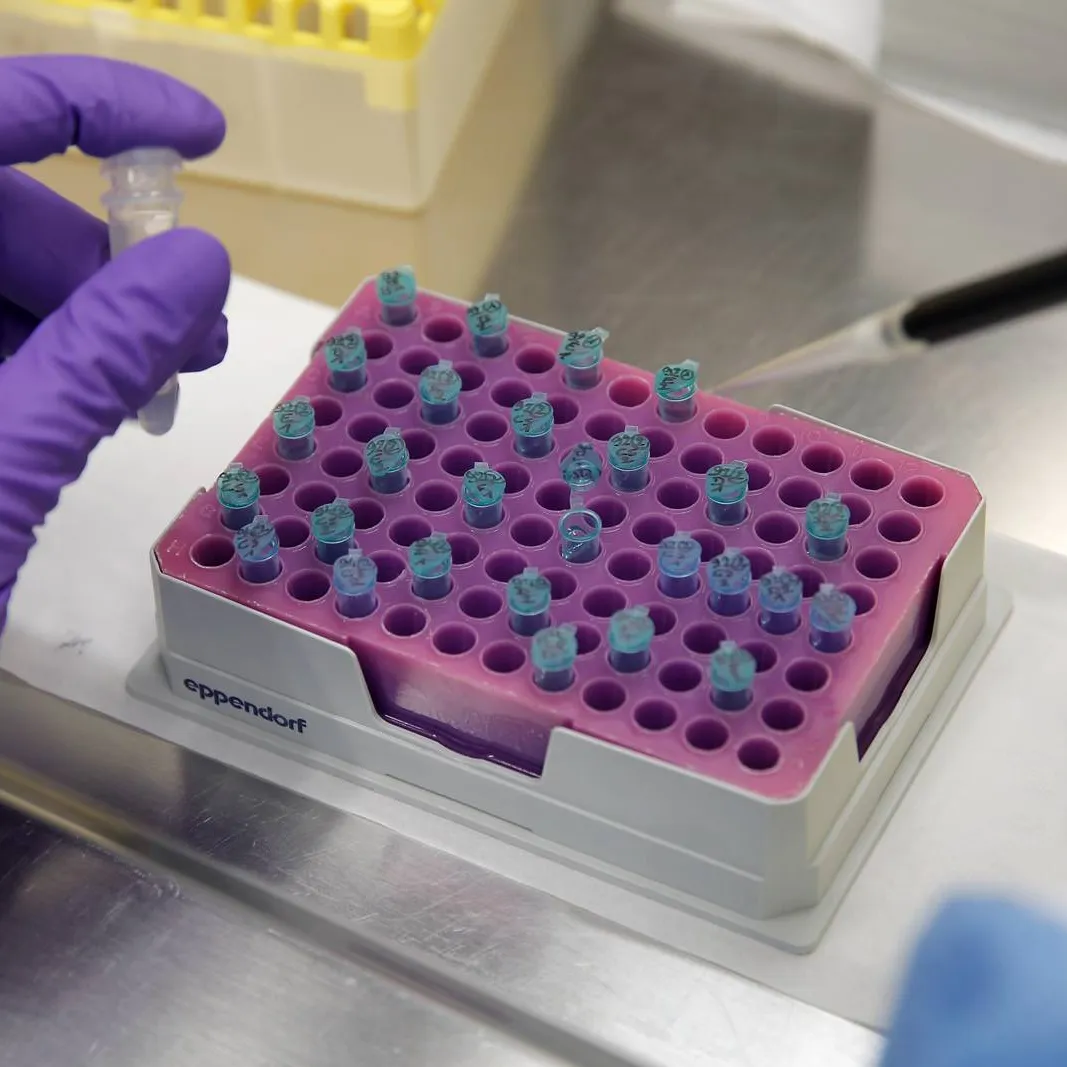
CDR peptide discovery platform: an unbiased, mass spectrometry-based method for novel serological biomarker identification in immune-mediated diseases
TTO offers
Information
Contact:
Maaike Cockx - maaike.cockx@uzleuven.be
Clinical and Diagnostic Immunology – KU Leuven
The laboratory of Clinical and Diagnostic Immunology of KU Leuven and PharmAbs, the KU Leuven Antibody Center, are optimizing a mass spectrometry-based platform in which differences in amino acid sequences of the hypervariable complementarity-determining regions (CDRs) of antibody molecules between two or more target populations can be detected, without a required prior knowledge of the antigen. In immune-mediated diseases, disease-related antibodies are produced by plasma cells and circulate in the blood at relatively high concentrations facilitating their detection and potential to be used as biomarker to enable diagnosis, prognosis or prediction of therapy response.
This MS-based immunoprofiling strategy was first applied in the search for novel biomarkers for diagnosis of rheumatoid arthritis (RA) patients in which anti-citrullinated protein antibodies (ACPA) and antibodies to rheumatoid factor (RF) are absent. Both are used as markers for RA diagnosis although their value is questionable as these antibodies are absent in about one third of RA patients, a percentage which is even higher in early RA. The last decade, a lot of effort is put in filling up the serological gap in RA diagnosis. However, newly discovered autoantibodies such as anti-carbamylated protein antibodies or anti-Porphyromonas gingivalis antibodies do not close the serological gap.
We will discuss the results of our CDR peptide discovery efforts, as well as the impact for improved diagnosis of RA patients and the potential to use our platform for CDR peptide discovery in other immune-mediated diseases including inflammatory bowel diseases, antibody-mediated kidney rejection,….
Learn more about the CDR platform: https://youtu.be/Vv1S_UWkeEI
